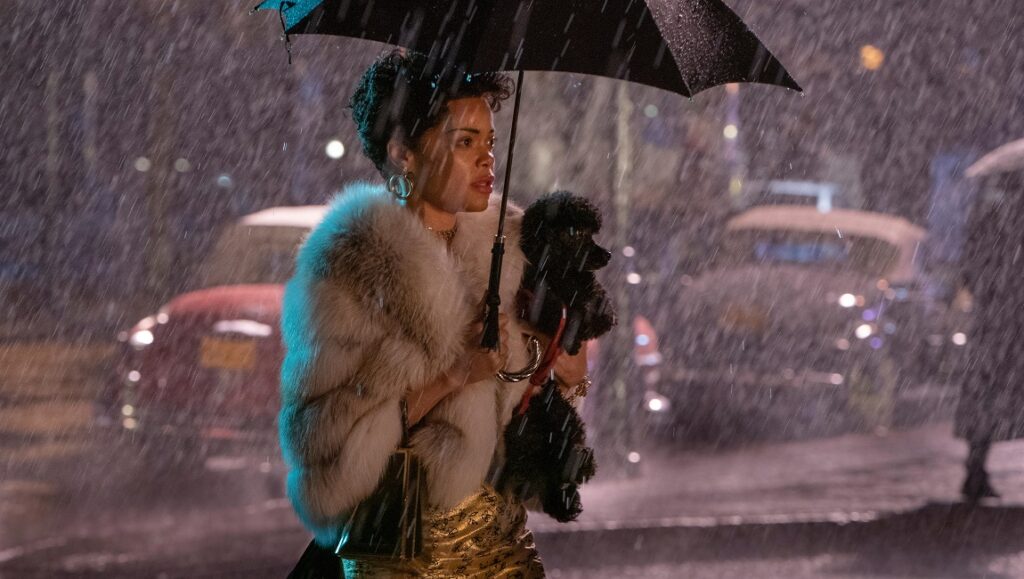The United States vs. Billie Holiday is a tonal misfire that fails to ever find the fascinating, complex story at its core.
Lee Daniels has an almost unparalleled knack for turning serious subject matter into cartoon, an approach that works when it flirts with pure camp (The Paperboy), but flops when applied real-world dramatics (The Butler). His latest, The United States vs. Billie Holiday, unfortunately, falls largely into the latter category. A bloated, almost interminably-paced retelling of the latter part of the great Holiday’s singing career, The United States vs. Billie Holiday focuses on both her status as a civil rights icon and the rocky final years of her life, specifically the controversy surrounding her anti-lynching song, “Strange Fruit,” that caused her to become an FBI target in the 1930s and ‘40s. Andra Day delivers an admittedly strong performance as Holiday, as does Trevante Rhodes as her sometimes lover, Jimmy, but for all the film’s harrowing depictions of drug use and virulent racism, Daniels can’t help but undercut their power with often downright farcical interludes.
Exhibit A: casting viral sensation Leslie Jordan as a flamboyant radio man whose interview with Holiday provides the film’s flashback structure feels like the framework of a completely different movie. It’s particularly frustrating because Jordan is a legitimate hoot, an appealing character actor whose presence usually enlivens, but the film’s scattershot handling of tone feels at war with the gravity of the material. If the intent was to use this character as an entry point to view the performer’s story through a queer lens — Holiday was famously bisexual — it would seem to be at odds with her apparent rejection of that ethos, specifically in the form of Jordan’s character, to whom she responds poorly. Even setting that aside, Jordan’s character elsewise proves illustrative of the film’s larger problems: his presence feels particularly adrenalized when juxtaposed with the turgid melodrama surrounding it, a contrast that continues to play out as the film consistently struggles to find its rhythm, swinging back and forth between sensationalism, camp, and social import in a way that never quite congeals into any cohesive whole. Such deficiencies aren’t helped any by the film’s near-simultaneous release with the thematically similar Judas and the Black Messiah, a film that’s perhaps less ambitious but is an altogether more consistently-paced and elegantly-crafted exploration of a famous civil rights activist who was betrayed to the FBI.
To its credit, The United States vs. Billie Holiday offers a different side of the legendary crooner than the one usually reflected in pop culture, and Daniels doesn’t shy away from the substance use issues that plagued her later life. But so much of the content is repetitive, and at over two hours long, it’s a problem that the film quickly establishes its themes and then has nowhere left to go. Holiday is a fascinating figure, and the legacy of “Strange Fruit” is the kind of historical and artistic fascination that needs to be examined, but by the time we finally hear it sung in its full glory, any potential for emotional catharsis falls prey to too little, too late. The story is right there, rife with potential and power, but Daniels ultimately can’t get out of his own way to let it speak for itself.
You can stream Lee Daniels’ The United States vs. Billie Holiday on Hulu beginning on February 26.


Comments are closed.